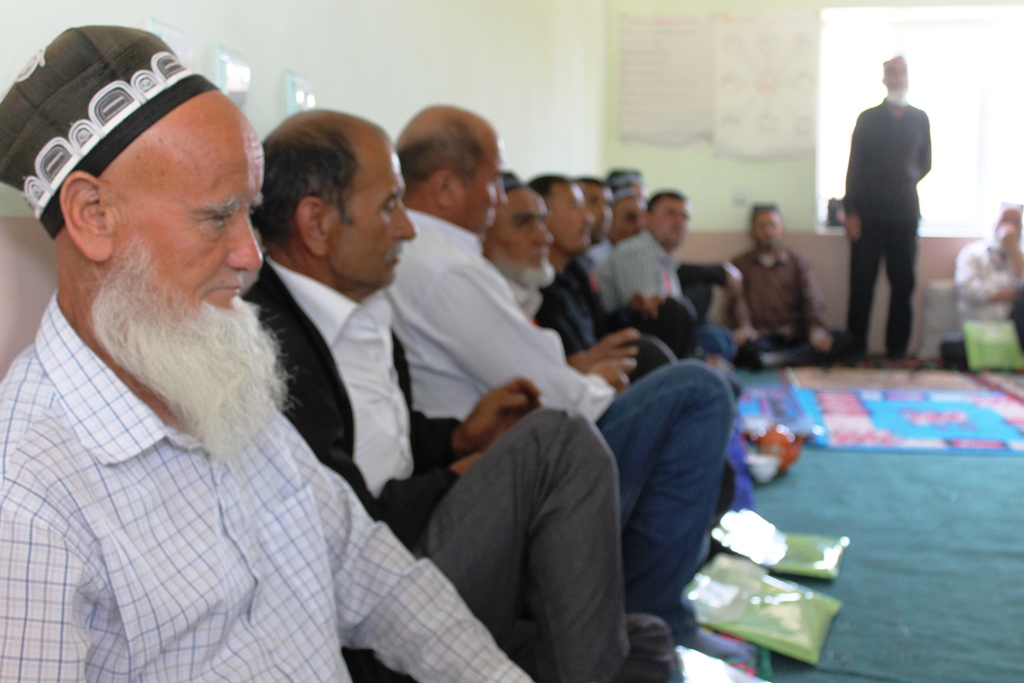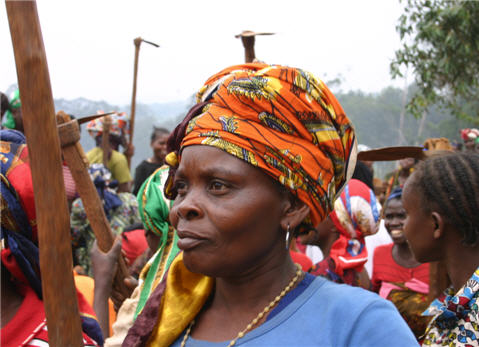Jon Thiele
Gender and economic development
Enterprise development and agribusiness
Credit in economic development
International Development

Gender in Economic Development Programming

In traditional societies a woman's role is defined by generations. She gets up with the sun to fetch water because it's woman's work.
She needs to know and believe that getting water for the family is valuable and productive labor. It is sometimes difficult to explain this, I've tried many times, but the realization that their work has value does not come easily to many poor women.
Development programs which do not take into account this element of attitudes, values, and beliefs cannot expect good results.
120,000 women in eight countries at enrollment one year after graduation income per day $0.51
$1.59
% saving regularly 27%
69%
value of assets $22.57
$49.24
earning over a dollar a day 4%
45%
still using skills training -
63%
In an environment in which a person is continuously under valued, it is understandable that a sense of helplessness can set in. This can cause a person to believe there is no point in taking action to modify behavior.
'Self-efficacy' is the term in adult learning: the belief in one's ability to act so as to achieve desired outcomes-- one's ability to cope, adapt, and be successful. Aspirations are critical too. It is the goals and a desire to attain them that encourage a person to make the necessary investment of effort needed to improve their lives.
To address this, programs often work toward empowerment and gender equity. These are about changing power relations in the direction of individuals, about individual agency. The idea is to effect a person's ability to see more and different options and to make meaningful choices based on reflection on these options. In the starkest terms, people can become the agents of their own development rather than being objects of someone else's plans.
This leads directly to changes in relationships in the family and community and marketplace. In many societies this means women enter the labor market for the first time. It almost always means women build skills to enable entry into traditionally male jobs. As the changed role of working women becomes more broadly accepted, relationships with male co-workers and value chain actors become more productive.
For the economists in the room, all of this is part of AL, human capital, in the Solow model.
In weak economies, employment is very unstable. To find work one needs to have a somewhat entrepreneurial view-- sell your labor rather look for a job-- and increased self-efficacy leads to an improved ability to adapt changing conditions, and works by several economists show that "constantly adapting to a complex world in constant turmoil which is both unpredictable and uncontrollable ... means the temperament of the entrepreneur is one of the major factors in" determining success. (See Gibbons.)
This is the critical point: it is vitally important to focus on enabling women to face the shocks of insecurity that come with their changing roles.
That is what 'life skills' are about. Over a period of time groups of participants work together to achieve a transformation in thinking that helps each develop the skills needed to lead a positive and productive adoption of new gender roles and their implications.
Both men and women can be apprehensive or anxious about change even if they see value in it. Providing job skills to women is one thing, but to enable adoption and use, a development program must be very conscious of the gender element specifically and take measures to inform and respect stakeholders, enroll and enlist support, and over come preconceived ideas and objections.
Too often, frankly speaking, local fears about foreign projects with western gender agendas have merit. They are gender programs; the goal is changing gender roles. I won't get in that now. Suffice it to say that there is a reasonable basis for apprehension in our "target" communities, and a good development project is prepared to work with the community to gain acceptance.
For economic development, this agency approach leads to systemic improvements. As participants, both men and women, develop the temperament to adapt they realize they need help-- ag extension, market information, financial services, marketing support, and more. The empowered entrepreneurs lead to the growth of demand-driven business development services.
This transformative learning can occur only over time. This means a participant must have a sustained relationship with the project. Coaching on gender roles is part of all the training with women and men in mixed groups and swapping roles. Experiential learning is key-- demo plots in agriculture, small scale market access activities, facilitated savings mechanisms. People need to absorb it all and it takes a few months.
An in depth view of how this works is in this piece I wrote for USAID.
We can do a ton of classes in business topics and vocational skills, but what makes the skills training productive and delivers the results shown at the top of this page are the improved life skills. I have worked with the most socially excluded and poorest women, and it takes time and a good deal of reassurance for a woman in such circumstances to transform the way she thinks about herself, her resources, her future, and her role in society. For economic growth projects to contribute to gender equity, this must be a focus.
##